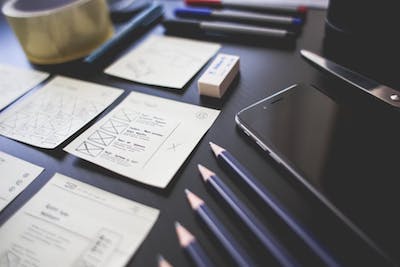Application tips > Top tips to prepare your cover letter
Top tips to prepare your cover letter
Your cover letter gives you an opportunity to discuss more in-depth how you're best-suited for the role/position. We’ve listed top tips on how to make the most of writing your cover letter. We’ve also included an example which will help you get an idea of the of the general layout and what should be included.
- Advert responses and Speculative cover letters
There are two types of cover letters; an advert response and a speculative cover letter. An advert response is when you've seen a vacancy posted online or in the newspaper. You then write the cover letter specifically for that vacancy, and then state where you saw it advertised. A speculative cover letter is when you send your cover letter and CV to a company without seeing a vacancy advertised. In both cases, you need to demonstrate your skills and knowledge of the company. The best sourse of information of a copmpany is normally on their annual reports, however, this depends on the size of the company as smaller companies may just have their history and goals on their "About us" page on their website. - Keep it short and sweet
Ensure you have researched the company and job role properly and that you are able to portray this knowledge in your cover letter. However, make sure your letter is both brief and informative rather than rambling on about why you should have the job. Make sure to be polite and respectful using sir, madam, mr and mrs. Your cover letter should be no more than one A4 side. - Adjust your writing style
A good cover letter is written in a formal, professional style, but not too formal or technical that it’s difficult to read. Make sure the letter fits the style of the organisation and job role to which you're applying. - First paragraph
Start your cover letter briefly explaining who you are, the role you are applying for, and where you found the job vacancy advertised. Don’t include too much information in the first paragraph as this information is detailed later on in your cover letter. - Second paragraph
In this paragraph explain why you have an interest in the job role and any background knowledge which will support this. - Third paragraph
This is where you explain what skills you have, the qualifications which specifically apply to the job role, and what you can offer to the employer. It is important you don’t repeat the same things that you’ve written in your CV! - Conclusion
Conclude your cover letter thanking the employer for their time and mention that your CV and references are attached (if applicable). - Proof read
Grammatical errors in a cover letter give off a bad first impression and can make the difference between you or another candidate being selected. If you're not sure then ask someone with credible writing skills for feedback and suggestions. - Save as PDF
Save your word document as a PDF when you're finished and do not want to make anymore changes. This way you prevent messed up lay outs or other changes that are unintentional.
